
The Salesforce ecosystem continues to grow, creating exciting opportunities for professionals who can bridge the gap between business needs and technical solutions. Among these roles, the Salesforce Business Analyst stands out as someone who translates complex requirements into workable strategies. If you’re considering this career or wondering what exactly these professionals do, this guide breaks down everything you need to know.
A Salesforce Business Analyst acts as a translator between business stakeholders and technical teams. While a traditional business analyst might work across various tools and platforms, a Salesforce BA specifically focuses on making the Salesforce CRM work better for organisations.
These professionals work on project-based initiatives to improve business processes and support efficient use of Salesforce, helping guide businesses to refine their operations whilst eliciting, documenting, and analysing requirements around business challenges.
Think of them as interpreters. When a sales director needs better forecasting tools or a customer service manager wants quicker case resolution, the Salesforce Business Analyst figures out how to make it happen within Salesforce. They ask questions, gather requirements, document processes, and work with developers to build solutions that actually solve real problems.
For organisations implementing Salesforce CRM solutions, having skilled business analysts on the team can make the difference between a smooth rollout and a chaotic one. Companies like Sailwayz, which specialises in Salesforce consulting and implementation, often work with business analysts to ensure their clients get customised solutions that genuinely meet their needs.
The day-to-day work of a Salesforce BA involves several interconnected tasks that keep projects moving forward.
Business analysts identify the needed functions of a system, application, or process by involving stakeholders such as project managers, customers, and testers through techniques like interviewing or surveys. This means sitting down with different departments, listening carefully, and asking the right questions to understand what people actually need.
Once requirements are gathered, they must be documented clearly. BAs are responsible for multiple types of documentation throughout the project lifecycle including stakeholder analysis, current state analysis, gap analysis, and user acceptance test plans.
After collecting information, Salesforce Business Analysts review requirements to determine how to accomplish business goals. They dive into details and use data insights to identify what the business needs to do to achieve the desired outcome.
This analysis phase is where BAs really earn their keep. They look at existing workflows, spot inefficiencies, and figure out where Salesforce features can streamline operations.
Based on their analysis, BAs identify options for solving business challenges and choose the best path forward. They work closely with developers and administrators to build solutions, whether that involves creating custom reports, setting up automation, or configuring workflows.
Keeping everyone involved with the project informed and aligned is a key responsibility, as stakeholders can often come with their own motivations and objectives that need balancing throughout the project lifecycle.
Good communication isn’t just about talking. It’s about listening, understanding different perspectives, and translating technical jargon into language that business leaders can understand.
Before any solution goes live, it needs testing. A BA’s role ensures that the right people are testing the right things, and can be the deciding figure between going live or returning to the drawing board.
Many people confuse these two roles, but they serve different purposes. The Salesforce Business Analyst is not an operational role like an Admin; it’s a project-based, business improvement role.
Administrators handle day-to-day system maintenance, user management, and routine configurations. Business analysts, on the other hand, work on specific projects to improve processes, solve business challenges, and implement new solutions. They focus on the “why” and “what” whilst administrators handle the “how” and “when.”
When working with Salesforce consulting partners like Sailwayz, you’ll often find both roles collaborating to deliver successful implementations. The BA designs the solution whilst the admin keeps the system running smoothly.
Success in this role requires a blend of technical knowledge and interpersonal abilities.
Whilst BAs don’t need to code, they should understand Salesforce capabilities inside and out. Excellent knowledge of Sales Cloud, Service Cloud, Experience Cloud, and Salesforce CPQ is expected, along with knowledge of development tools and processes that aid in formulating use cases and designing project requirements.
Understanding how data flows through Salesforce, how reports work, and what’s possible with automation tools helps BAs design realistic solutions. Data management skills come in handy when collaborating with technical teams and stakeholders, as knowing your data and when to utilise it appropriately is crucial.
Analysis is the bread and butter for a Salesforce business analyst, requiring the ability to analyse the needs, gaps, and processes before coming up with solutions. This means looking at problems from multiple angles and thinking creatively about solutions.
Problem-solving goes hand in hand with analysis. The ability to see a problem and make quick decisions with limited information can be intimidating but is essential.
Perhaps the most important skill set involves working with people. When you think about communication, you think about speaking and presenting, but listening is just as important, as a BA creates an environment for open conversations and clearly communicates information back out to the appropriate teams.
BAs interact with everyone from C-level executives to end users. They need to ask good questions, really listen to answers, and explain technical concepts in terms that make sense to their audience.
Given their position handling multiple projects simultaneously, project management skills are essential to staying updated with minute details and keeping stakeholders informed.
Creating clear, comprehensive documentation is non-negotiable. Requirements documents, process maps, user stories, and training materials all need to be written in ways that different audiences can understand and use.
Salesforce released the Business Analyst certification in 2022, alongside Trailhead modules for this career path. This certification validates your skills in gathering requirements, analysing data, and proposing solutions within Salesforce.
The exam covers several key areas:
The exam features 60 multiple-choice questions to complete within 105 minutes, with a minimum score of 72% required to pass.
However, certification alone isn’t enough. Many experts recommend starting with the admin certification first and then building on that platform knowledge by adding the BA certification, as having an admin certification signals that you might be able to contribute configuration support to the development team too.
The Salesforce Business Analyst role offers solid earning potential, though the market has shown some interesting trends recently.
The average salary for a Salesforce Business Analyst is $112,823 per year in the United States, with a typical pay range between $90,813 (25th percentile) and $141,677 (75th percentile) annually.
Experience level makes a significant difference. Junior Salesforce analysts earn around $65,000 per year, middle-level roles average about $102,000 per year with more responsibilities and complex projects, whilst senior level analysts earn around $160,000 per year.
Location, industry, and certifications all influence these numbers. Business Analysts working in highly regulated or high-revenue sectors such as finance, healthcare, or technology tend to earn higher wages due to the complexity and criticality of their projects.
Years of hands-on experience with Salesforce projects play a significant role in salary discussions, with entry-level analysts earning less whilst those with 5+ years, especially in multi-cloud or enterprise environments, often command premium salaries.
Certifications beyond just the BA credential can help. Salesforce Consultant certifications like Sales Cloud, Service Cloud, and Marketing Cloud can signal depth in areas that matter to specific teams, whilst Accredited Professional credentials like Health Cloud can signal expertise in certain industries.
It’s worth noting that global demand for Salesforce Business Analysts has dropped recently, with the global supply of Salesforce Business Analysts growing by 7% in established markets but demand still lagging behind.
Despite this, skilled BAs remain valuable. The role continues to evolve, and organisations implementing Salesforce solutions still need professionals who can make sense of business requirements and translate them into technical specifications.
Starting this career path requires building both Salesforce knowledge and business analysis skills.
If you’re new to Salesforce, start with administrator training. Understanding how the platform works at a fundamental level gives you the knowledge to design better solutions. Many successful BAs began as admins before transitioning into business analysis roles.
For those coming from traditional business analyst roles, getting hands-on Salesforce experience is the priority. Sign up for a developer org (free from Salesforce) and start exploring. Build reports, create workflows, and get comfortable with the interface.
Theory only takes you far. Look for opportunities to work on Salesforce projects, even in supporting roles. Volunteer to help with user acceptance testing, document current processes, or shadow experienced BAs to see how they work.
Working with Salesforce implementation partners can provide valuable exposure to different industries and use cases. Companies like Sailwayz offer implementation services across various sectors, giving team members broad experience with different business challenges.
Start with the Salesforce Administrator certification, then move to the Business Analyst certification. Once you have that foundation, digging deeper into specific Salesforce clouds can lead to higher salaries, especially the more niche ones like Manufacturing Cloud, Consumer Goods Cloud, or Health Cloud.
Consider credentials outside the Salesforce ecosystem too. The Certified Scrum Master certification is often recommended, as being able to spot dysfunction and support agile processes is a superpower on any project team, whilst the CBAP from the International Institute of Business Analysis is a well-respected credential that helps formally understand business analysis.
Technical knowledge matters, but soft skills often make the difference between average and outstanding BAs. Practice active listening, work on your presentation skills, and learn to write clear, concise documentation. Join user groups, attend Salesforce events, and network with other professionals in the ecosystem.
The Salesforce Business Analyst role can lead to several career paths:
Partnering with experienced Salesforce consultants can significantly impact implementation success. Sailwayz provides customised Salesforce solutions that help organisations boost sales, improve customer connections, and refine their processes. Their certified consultants work alongside internal business analysts to deliver implementations that genuinely meet business needs.
When selecting an implementation partner, look for teams with diverse certifications, experience across different industries, and a track record of successful projects. The best partners don’t just implement Salesforce; they work to understand your unique business challenges and configure solutions accordingly.
The role continues to evolve as Salesforce adds new capabilities and organisations become more sophisticated in their CRM usage. Artificial intelligence, particularly with Salesforce’s Einstein features, is changing how BAs approach data analysis and solution design.
With AI in the mix, things get even more complex, as Salesforce BA job descriptions are already some of the most nebulous in the ecosystem. However, this also creates opportunities for BAs who can adapt, learn new tools, and stay ahead of technological changes.
The skills you build as a Salesforce BA transfer well beyond this specific role. You’re building skills that travel well, whether you stay a BA, pivot to product, or start leaning into strategy or solution design.
The Salesforce Business Analyst role offers a rewarding career for professionals who enjoy solving business problems, working with people, and making technology work better for organisations. Success requires a mix of technical Salesforce knowledge, analytical thinking, and strong communication skills.
Starting your journey involves building Salesforce expertise, pursuing relevant certifications, and gaining hands-on experience with real projects. Whether you’re transitioning from a traditional BA role, moving up from Salesforce administration, or entering the field fresh, the path forward involves continuous learning and practical application.
Working with experienced teams, whether as part of an implementation partner like Sailwayz or within an organisation’s internal team, provides valuable exposure to different challenges and solutions. The skills you develop as a Salesforce BA create opportunities across the Salesforce ecosystem and beyond, making it a career path worth exploring for those interested in the intersection of business and technology.
What qualifications do I need to become a Salesforce Business Analyst?
Whilst there’s no specific degree requirement, most employers prefer candidates with a bachelor’s degree in business administration, computer science, or related fields. More important than formal education is practical Salesforce experience and business analysis skills. Starting with the Salesforce Administrator certification provides a strong foundation before pursuing the Business Analyst certification.
How is a Salesforce Business Analyst different from a regular business analyst?
Traditional business analysts work across various tools and platforms to solve business problems. A Salesforce Business Analyst specifically focuses on solutions within the Salesforce ecosystem. They need deep knowledge of Salesforce capabilities, clouds, and features to design effective solutions. Their work centres on configuring and optimising Salesforce to meet business needs rather than working across multiple systems.
Can I become a Salesforce Business Analyst without coding experience?
Yes, you don’t need to write code to be a successful Salesforce BA. The role focuses on requirements gathering, process analysis, and solution design rather than development. That said, understanding how Salesforce works technically helps you design better solutions and communicate more effectively with developers. Basic knowledge of automation tools and data flows proves valuable even without programming skills.
What industries hire Salesforce Business Analysts?
Nearly every industry uses Salesforce, creating opportunities across sectors. Healthcare, financial services, technology, retail, manufacturing, and non-profit organisations all employ Salesforce BAs. Regulated industries like healthcare and finance often pay higher salaries due to complex compliance requirements. Specialising in a specific industry can make you more valuable and lead to better compensation over time.
Is the demand for Salesforce Business Analysts growing?
The market has shown mixed trends recently. Whilst the overall supply of Salesforce professionals has increased, demand for BAs specifically hasn’t kept pace in established markets. However, skilled BAs remain valuable as organisations continue implementing and optimising Salesforce. Specialising in niche areas, gaining multiple certifications, and developing strong technical skills can help you stand out in a competitive market.
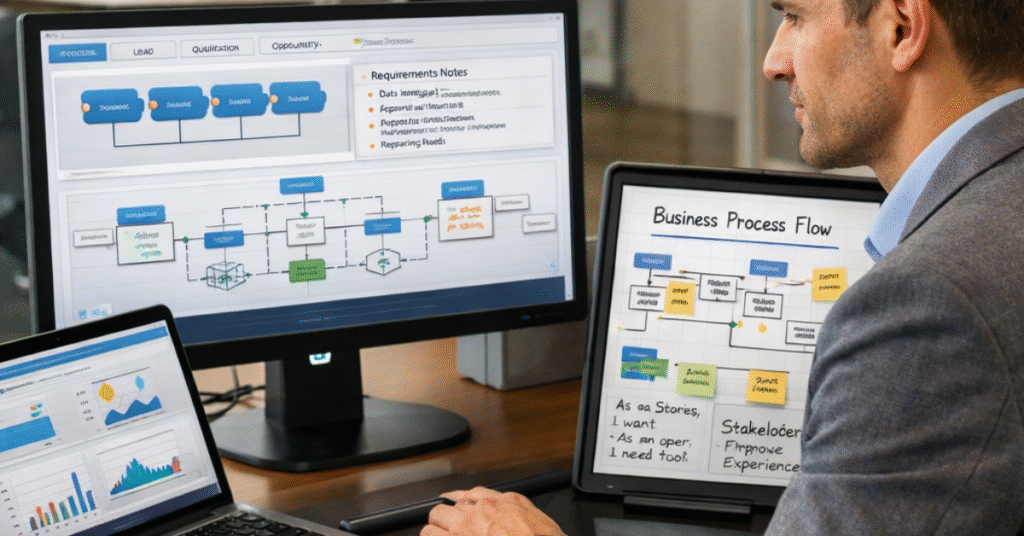
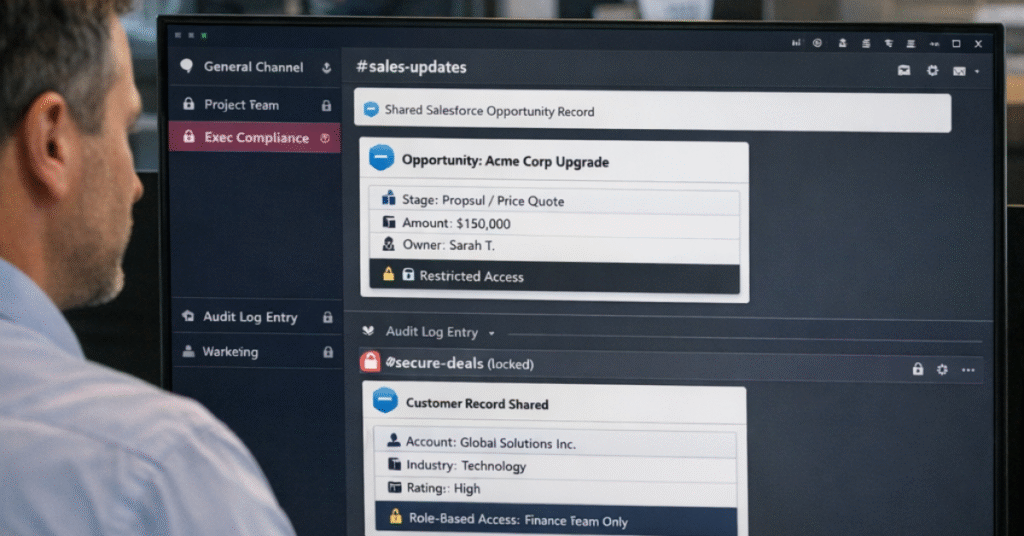
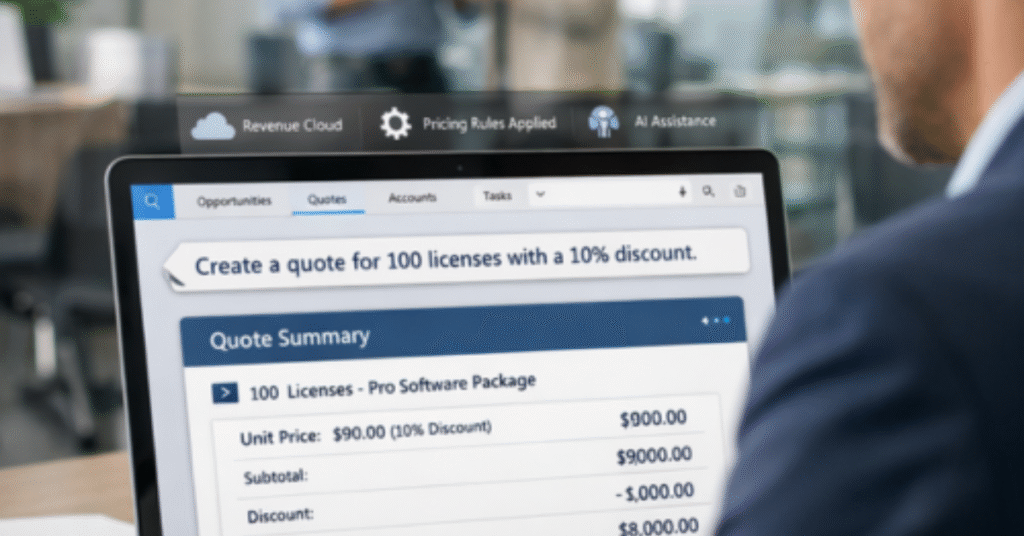



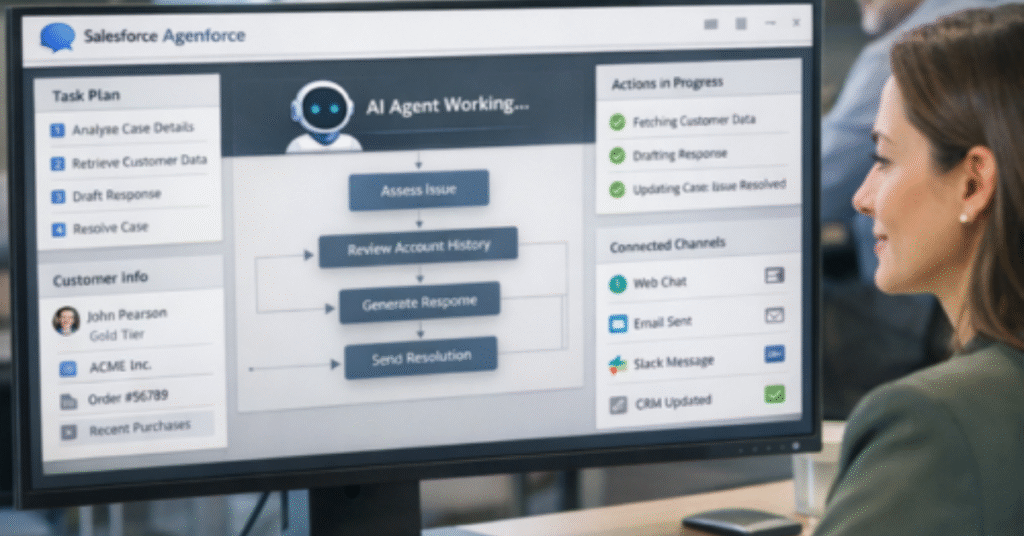
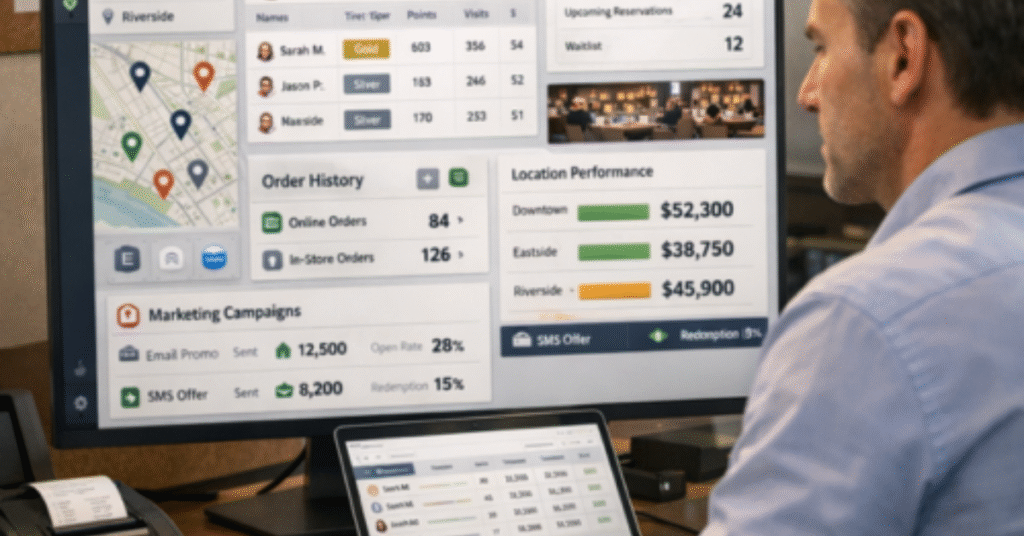
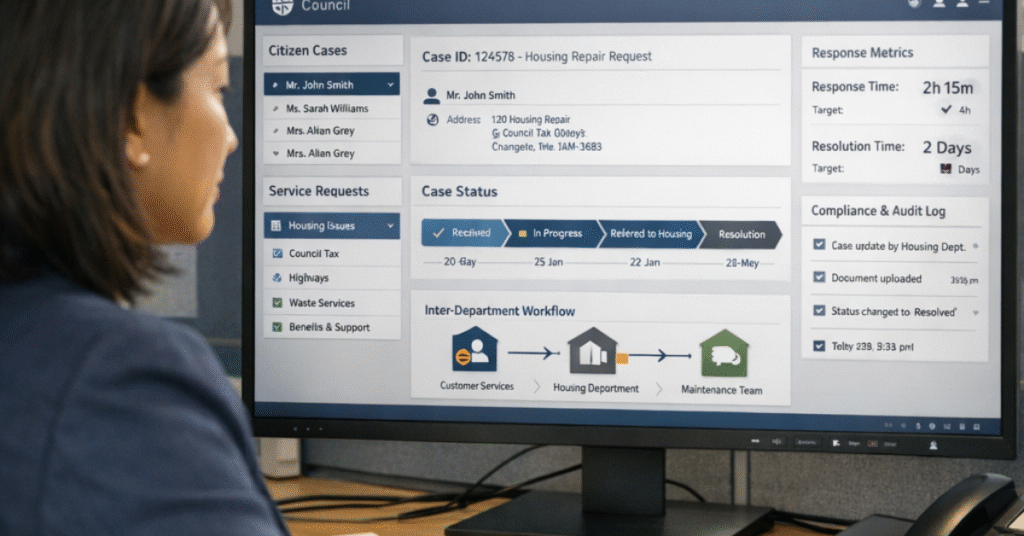


Joshua Eze is the Founder & Salesforce Architect at Sailwayz, a certified Salesforce Consulting Partner based in the UK. With over 6 years of experience leading CRM transformations, he is a certified Application & System Architect passionate about using technology to simplify business processes. Joshua helps companies unlock the full potential of Salesforce with strategic, scalable, and secure solutions.